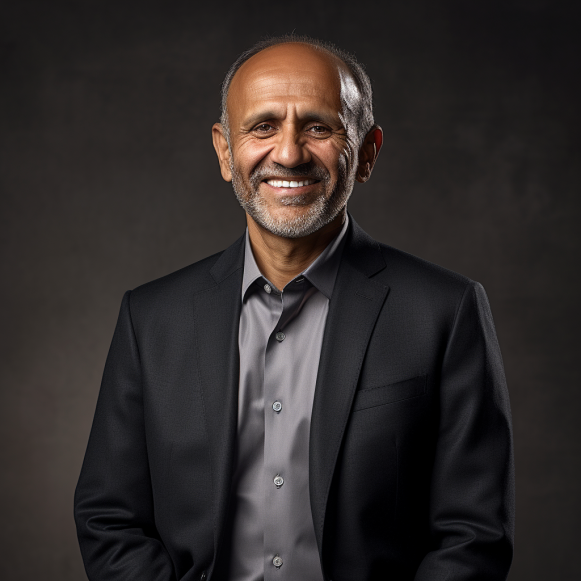Founder Collective has quietly built a seed-investing powerhouse that just raised a $95 million new fund. Its secret sauce: staying small.

- Founder Collective has raised $95 million for its fifth and largest fund, it tells Insider.
- The four investment partners are the single-largest limited partner in the fund.
- Founder Collective has ruthlessly focused on the seed stage, which reflects in its fund sizes.
It’s no secret that startups take longer to raise funds. What is less obvious is that many venture capital firms are in the same boat.
While many firms are skipping the fundraising season, Founder Collective is launching a new fund. Founder Collective exclusively informs Insider that it has raised $95 million for its fifth and largest fund. The fund’s size represents a modest 12% increase over the last vehicle it closed in 2020, though a spokesperson for the firm said it nets out to roughly the same size after inflation.
In accordance with the firm’s thesis, the four investment partners are the fund’s single-largest limited partner, a structure they say allows them to run the shop as they see fit. It also provides them with more clout in the game.
“Being our own largest investor allows us to take a longer view in some ways.” It also allows us to focus on fund performance rather than management fees,” Eric Paley, Founder Collective’s managing partner, said via video call from his office in Cambridge, Massachusetts.
Sapphire Partners joined existing limited partners Cendana Capital and Foundry Group in investing in the fund.
The launch of Founder Collective’s new fund comes at a difficult time for the venture market. Emerging managers are having difficulty raising funds as their limited partners rely on brand names. There have been reports of layoffs at well-known companies. Even Andreessen Horowitz’s announcement that it is raising a set of funds that is only 17% larger than its previous pair has PitchBook News’ Marina Temkin calling for the demise of even larger mega-funds.
While it isn’t the most flashy shop, those in the know know that Founder Collective has quietly built one of the East Coast’s most successful venture-capital franchises. It invests in a variety of industries and has exited nine billion-dollar companies, including The Trade Desk, an adtech company that went public in 2016, and PillPack, which Amazon purchased in 2018. It also has stakes in privately held Airtable, Whoop, SeatGeek, Verkada, and Shield AI, an eight-year-old defense software startup that was valued at $2.7 billion in an October round of funding.
According to Beezer Clarkson, who leads Sapphire’s fund investing strategy, the firm has received more interest from limited partners than it has capacity in its funds. She said she had been watching the deals they led and the ways they contributed to the ecosystem for years, through events and thoughtful essays, before accepting an invitation to invest in fund five.
“You kind of practice the art of hanging around the hoop, and when the stars align you say ‘thank you’ and are grateful,” she said.
Founder Collective began in 2009 as a group of founders and investors pooling their funds to invest in startups. Paley wrote a $95,000 check to Uber within the first year, which was returned many times over. Meanwhile, his partner David Frankel oversaw the firm’s investment in Coupang, South Korea’s answer to Amazon, which later went public at a valuation of $60 billion. These and other transactions landed the partners on the Forbes Midas list, with Frankel ranking 11th this year.
The partners could have expanded their funds further, especially as capital is increasingly concentrated in a few hundred mega funds around the world. Larger funds have higher management fees, allowing partners to pay themselves more and hire more support staff. Founder Collective, on the other hand, has purposefully remained lean.
A smaller fund means that the investor only has enough cash to participate in small rounds of funding, which are typically raised by young companies. Founder Collective has always been laser-focused on the seed stage, where investors are willing to take the greatest risk in exchange for the highest returns. As a result, the size of its latest vehicle indicates that the company’s founders are sticking to their guns.
The firm can also limit fund sizes because it foregoes pro rata rights, which means it does not retain its initial ownership percentage in subsequent rounds. It resisted the temptation to raise an opportunity fund during the pandemic’s peak, when firms like Susa Ventures, Felicis Ventures, and Y Combinator were cranking out growth funds.
According to the partners, Founder Collective’s discipline keeps it aligned with the founder.
Amanda Herson, Founder Collective’s fourth partner, stated that the company avoids “signaling risk” in the market. When a multistage firm leads a seed round for a startup but does not join a subsequent round, others may interpret the absence as an indication that the startup is slipping.
“Because the market knows that we will never lead a series A, we can represent a founder’s best interests,” Herson, who joined the firm as a principal in 2020, explained.
This strategy may nudge the founder toward a term sheet that provides less capital than other offers but gives the founder access to a desirable network of investors.
An investor will sometimes encourage a founder to raise “the most money they absolutely can at the highest possible price,” according to Paley, so that the investor can parade the startup in front of their limited partners and brag about the markups they’re getting. On the strength of their performance, the investor can raise a larger fund.
However, this funding frenzy has resulted in a glut of startups that raised too much money at valuations they may never reach. In the midst of a cash crunch, some late-stage startups are folding and selling off their best assets.
According to Frankel, Founder Collective wants its founders to raise as little money as possible. The more capital they take in, the more they burn, which has unintended consequences. Another advantage of raising less money is that founders and early investors face less dilution. It’s a popular strategy as startups cut costs to extend their runway.
“We have been fastidious and we’ve screamed it to anyone who will listen: capital efficiency, capital efficiency, capital efficiency,” he said.






